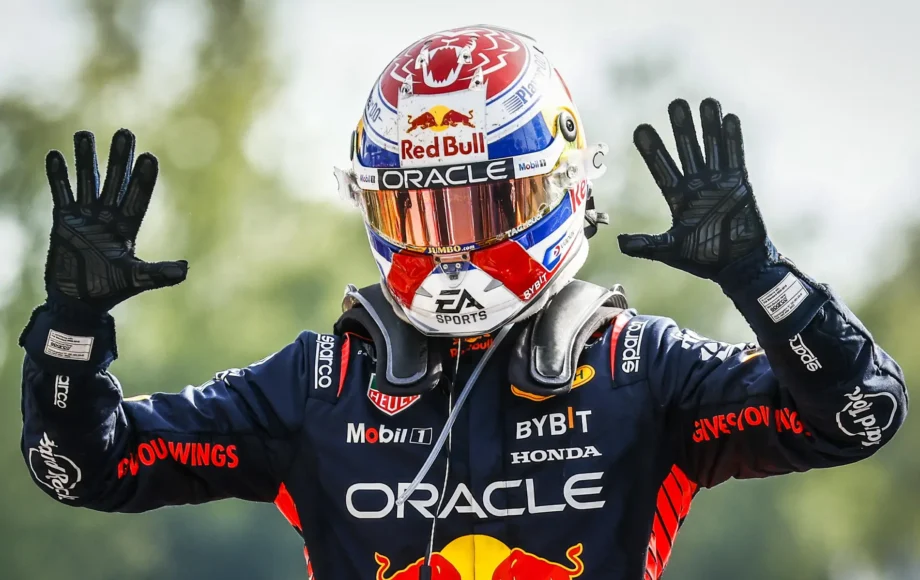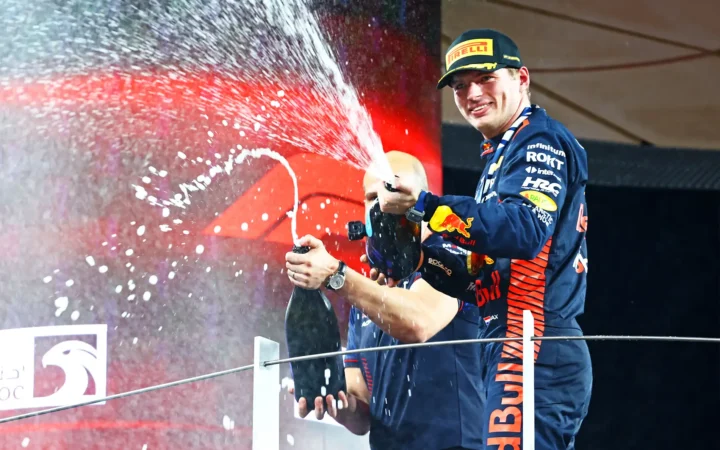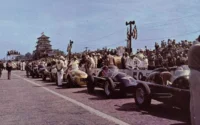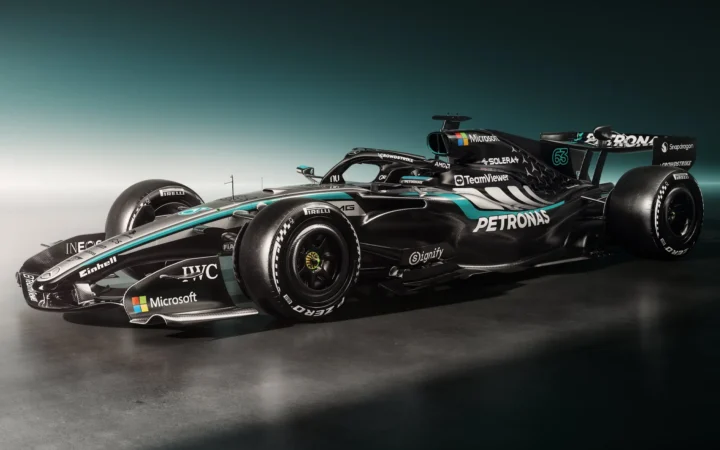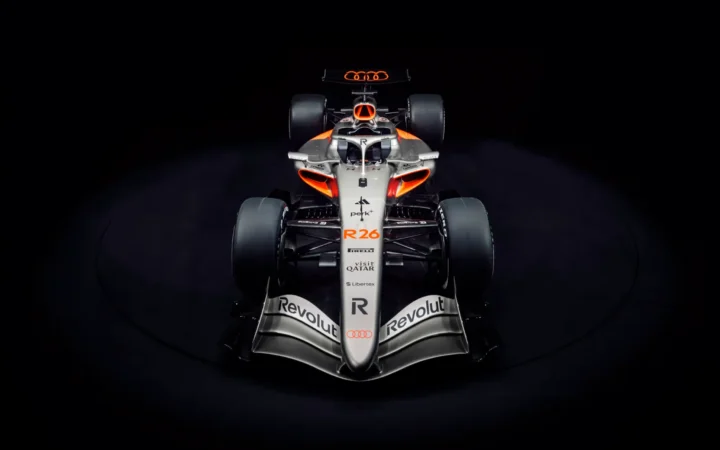Throughout F1 history, a handful of drivers have strung together an impressive number of winning streaks. Topping the charts is Max Verstappen, who, in the 2023 F1 World Championship, went on a 10-race winning streak for Red Bull Racing before almost outdoing himself with a follow-up 9-race streak that stretched into the 2024 season. Not far behind, and another Red Bull driver, is Sebastian Vettel’s 2013 run of nine consecutive wins, which highlighted Red Bull’s dominance in the final year the series used the 2.4-litre V8 engine configuration, and just before the turbo-hybrid era came into effect for 2014. Add names like Nico Rosberg, who secured seven back-to-back wins from 2015 into his 2016 championship-winning year; there is one clear thing. Only a dominant car and driver combo can achieve the streaks these drivers have set.
What To Know?
- Max Verstappen leads with an astonishing 10-race win streak in 2023, followed by a 9-race streak into 2024—both achieved with the dominant Red Bull team.
- Legends like Sebastian Vettel, Michael Schumacher, and Nico Rosberg delivered era-defining runs of 7+ wins, each capitalising on dominant cars.
- Historic icons like Alberto Ascari and Jack Brabham lit up the early decades of F1 with winning streaks that set the benchmark long before modern reliability and tech gave drivers the edge.
- The “Four-Win Club” features big names like Senna, Prost, Alonso, and Clark, proving you don’t need double digits to make history — though some all-time greats, like Fangio and Lauda, never quite got there.
What are the longest winning streaks in F1 history?
Despite the decades seeing more reliable cars, it’s not just the modern era of F1 where record-breaking winning streaks have been set. Legends of the past, like Alberto Ascari, the first dominant figure in Formula 1 History back in the 1950s, pulled together seven wins for Ferrari when races were dangerous and raw. Michael Schumacher features heavily (as you’d expect), with three separate streaks including a 7-win streak in 2004 for Ferrari. Surprisingly, seven-time World Champion, Lewis Hamilton, features only twice on our list, considering his dominant years with Mercedes, who matched Jim Clark for Lotus in 1965 and Jack Brabham in a Cooper in 1960.
Here’s a complete list of the 14 longest F1 winning streaks of all time, with more than five consecutive wins:
F1’s longest winning streaks: the drivers who just kept winning
1: Max Verstappen, Red Bull – 10 wins
One storyline eclipsed them all in the 2023 Formula 1 season: Max Verstappen turning the grid into his personal highlight reel. What started with whispers of a Sergio Perez title charge—especially after Checo’s pole in Miami—quickly turned into a masterclass in total control. Verstappen lined up ninth on the grid in Florida, carved his way through the field, and left both teammate and rivals trailing.
From that moment on, it was less a title fight and more a victory parade. Verstappen’s streak spanned ten consecutive races, a display of consistency, precision, and frankly, superiority. Only the chaos of Monaco’s downpour and a briefly feisty Ferrari at Monza dared to challenge him. The RB19 in his hands looked untouchable, perhaps even historic. For today’s F1 fans used to unpredictability and midfield shake-ups, this was something rarer: a winning streak that felt inevitable, yet impossible to look away from.
2: Sebastian Vettel, Red Bull – 9 wins
Come mid-2013, Lewis Hamilton had just taken a gritty win in Hungary for Mercedes and declared his intent to chase down Sebastian Vettel in the second half of the season. With Kimi Räikkönen and Fernando Alonso also in the mix, it felt like the title fight could heat up. What followed instead was a cold, clinical shutdown of the championship by Vettel and the mighty RB9.
When F1 returned from the summer break, Vettel didn’t just win — he vanished into the distance. From Spa to São Paulo, it was nine straight victories, a streak that left the rest of the grid playing catch-up. Each race seemed to underscore the same message: this was Vettel at his unstoppable peak, driving a car perfectly tuned to his style. The 2013 Brazilian Grand Prix marked the end of that winning run, his final win in Red Bull colours, and the curtain call on a golden era of four consecutive titles.
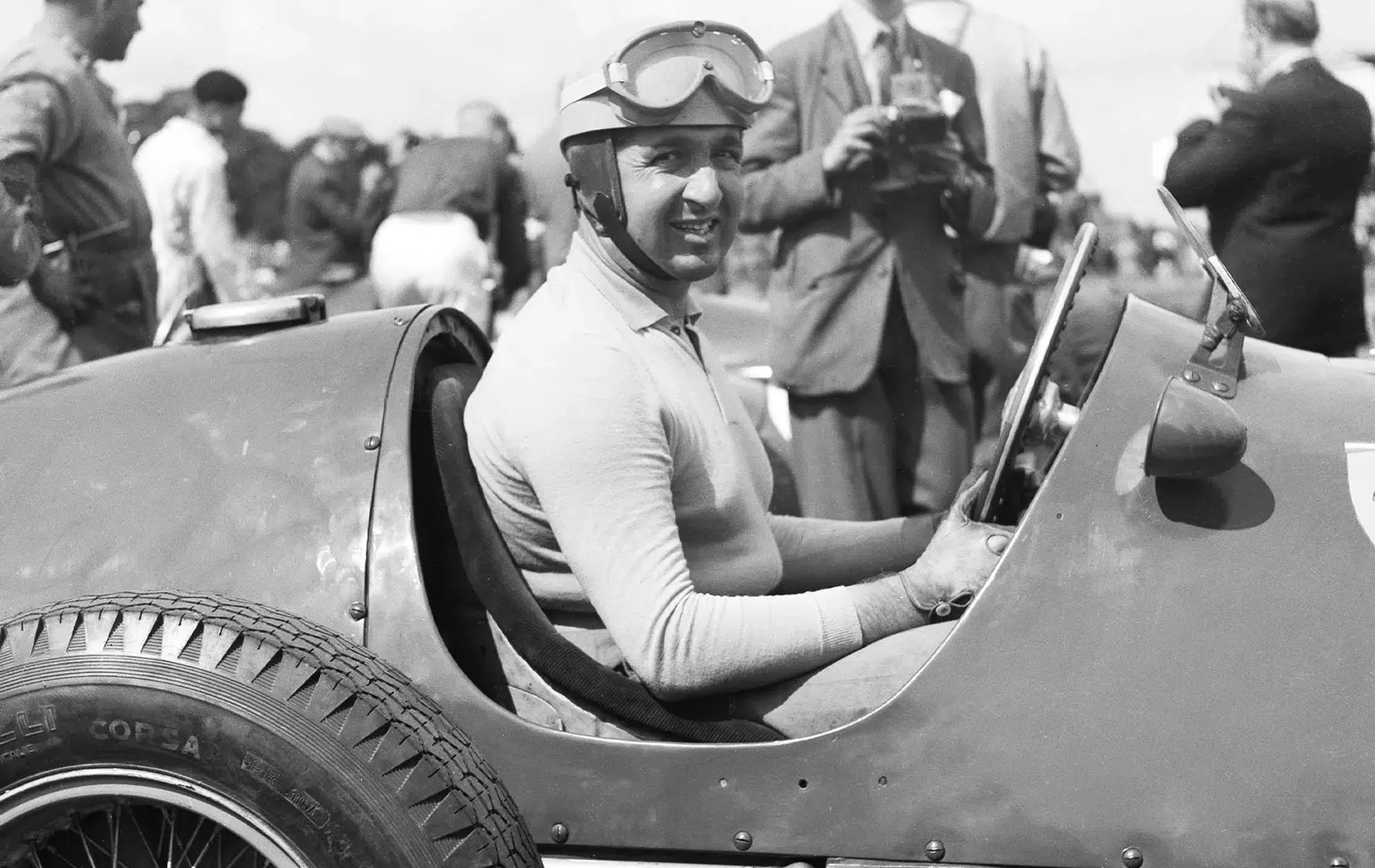
3: Alberto Ascari, Ferrari – 7 wins
Long before carbon fibre and DRS zones, Alberto Ascari was rewriting what dominance looked like in a racing car. The cool, calculated Italian racked up seven consecutive wins for Ferrari between 1952 and 1953, a feat even more astonishing when you realise he won over 40% of the F1 races he ever entered. In an era when danger lurked at every corner and drivers were as much daredevils as athletes, Ascari stood out.
His winning streak officially began in Belgium in 1952 and stretched through six straight victories that season, continuing with the season opener in Argentina the following year. But F1 history is full of quirks: the next “championship” race was the Indy 500, awkwardly included in the calendar back then, and Ascari didn’t race it. Technically, that breaks the streak. But ignore the Indy outlier, and he actually won nine grands prix in a row — a record that stood untouched for decades. Whether you count seven or nine, there’s no denying that Ascari was F1’s first dominant driver.
4: Michael Schumacher, Ferrari – 7 wins
If we look at all-time F1 dominance, Michael Schumacher’s 2004 season has to be near the top of the list. Kicking things off with five straight wins, the Ferrari maestro looked utterly untouchable—until a rare hiccup in Monaco, where a clash with Juan Pablo Montoya ended his charge. But Schumacher wasn’t one to let momentum slip for long. He returned at the Nürburgring and simply turned the power back on, winning seven consecutive races and sealing the championship with ruthless efficiency by the end of August.
That seventh win came in Hungary and brought his season total to a jaw-dropping 12 out of 13 victories—numbers that looked untouchable until Verstappen came calling. It wasn’t even his earliest wrap-up of the season. That came in 2002, when he won with six races still to go. And if you’re counting streaks, he took four wins to end 2000, two more to start 2001, split by the winter break.
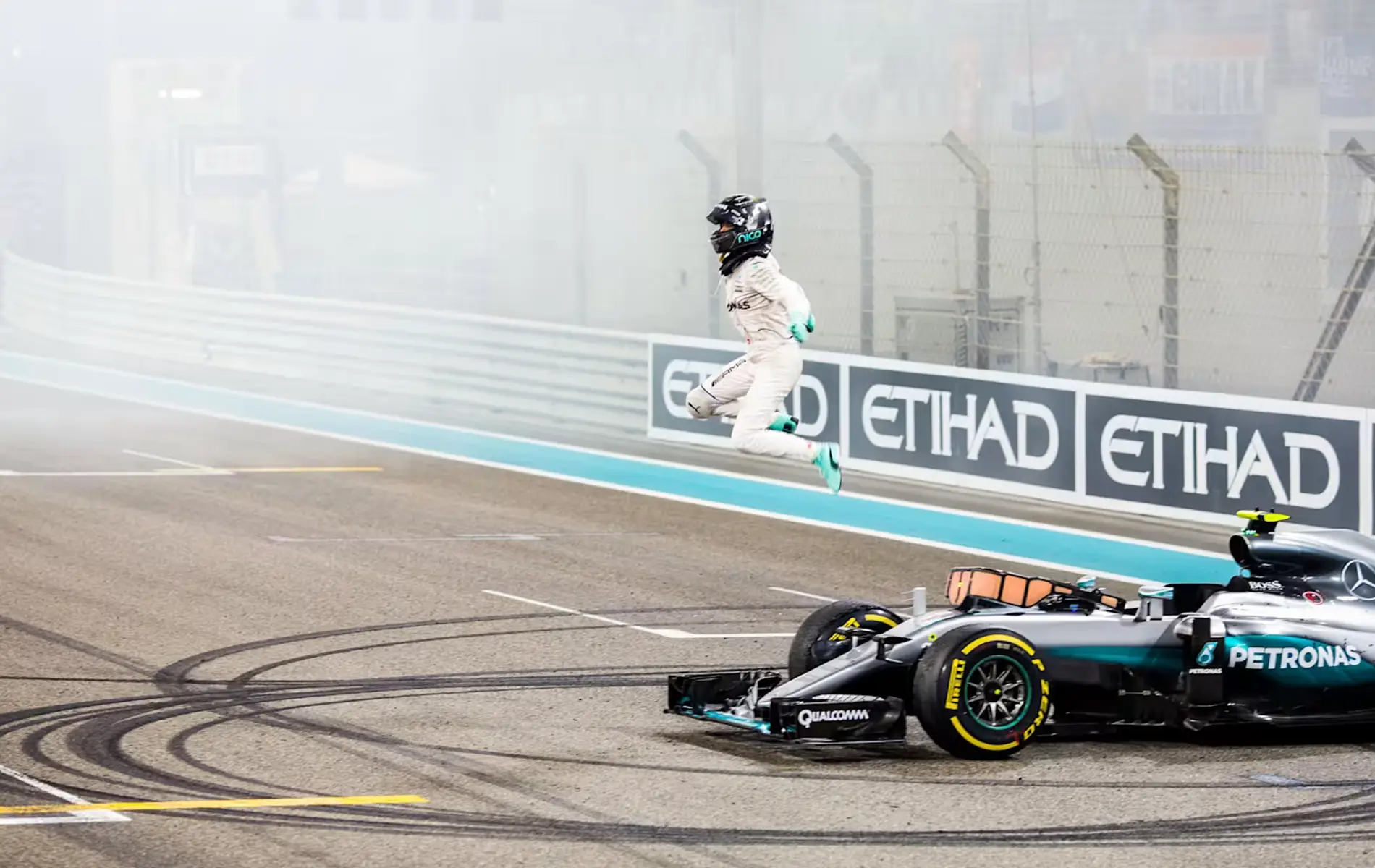
5: Nico Rosberg, Mercedes – 7 wins
When Lewis Hamilton clinched his third world title at the 2015 US Grand Prix, it wasn’t just champagne that was flying—so was a second-place cap, casually lobbed at teammate Nico Rosberg. The tension was real, and Rosberg’s tight-lipped reaction said it all. What came next was less a response and more a cinematic-style comeback. Channelling all that frustration, Rosberg won the final three races of 2015 while Hamilton seemed to ease off the throttle.
But Rosberg wasn’t done. The 2016 season started with a bang as he added four more wins to his streak, making it seven in a row and sending a clear message: this was going to be a fight. That blistering run gave Rosberg the early advantage he needed to go toe-to-toe with Hamilton all season long, culminating in a dramatic championship victory in Abu Dhabi. And then, in true Hollywood fashion, he walked away. No long farewell, no encore—just a world title and a perfectly timed exit.
6: Jack Brabham, Cooper – 5 wins
Like Ascari, Jack Brabham in the 1960 season, became another early dominant driver, securing five consecutive Grand Prix wins — and he did it after a rocky start to the season. A DNF in Argentina and a controversial disqualification in Monaco had left him with a mountain to climb. But Brabham soon found his stride.
His streak began at the 1960 Dutch Grand Prix, where Brabham’s Cooper-Climax was planted firmly near the front. He stormed to victory by 24 seconds and never looked back. From there, he reeled off wins in Belgium, France, Britain, and Portugal. By the time the dust settled in Porto, only his teammate Bruce McLaren had managed to stay within a minute of him.
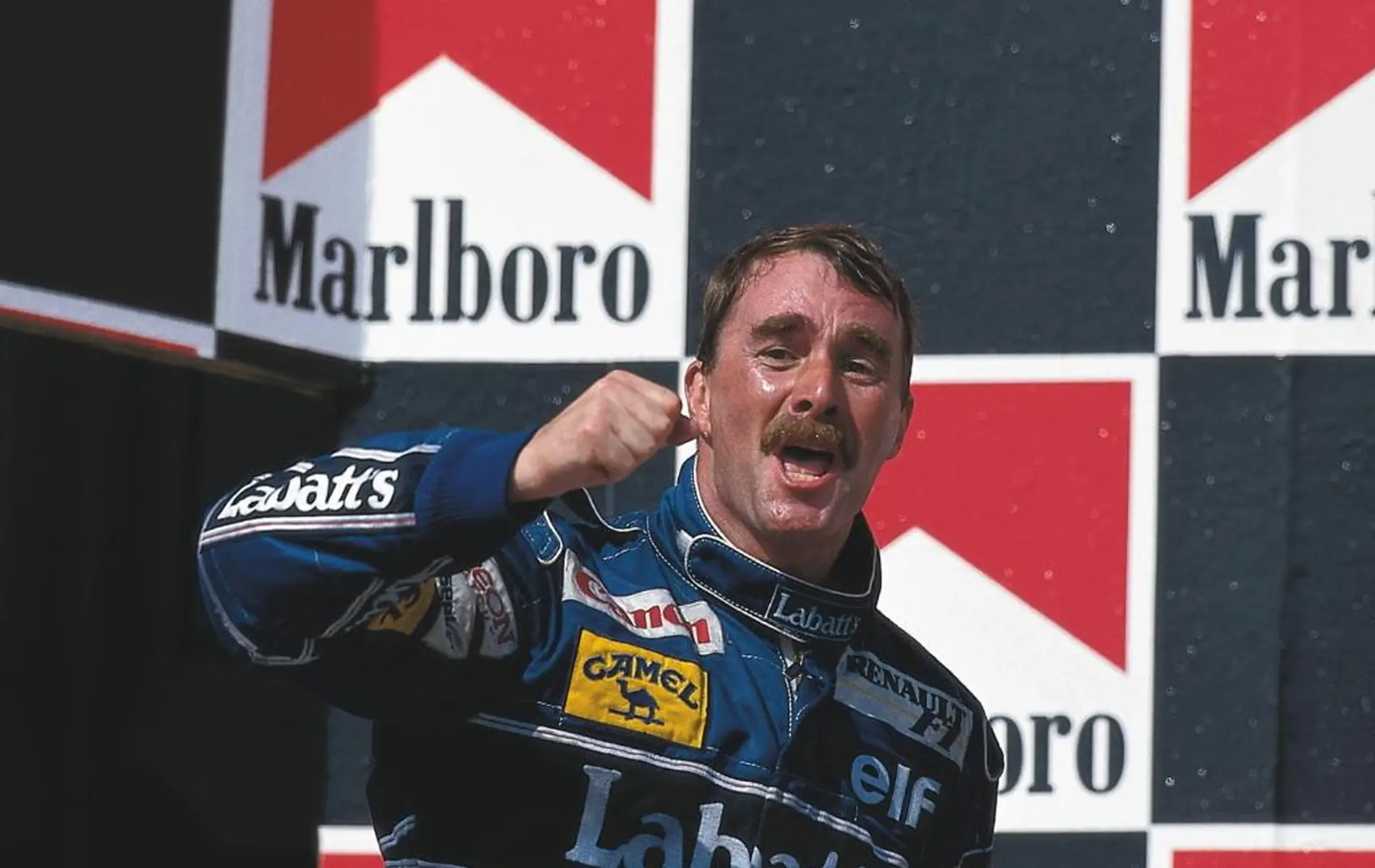
7: Nigel Mansell, Williams – 5 wins
For years, Nigel Mansell had been F1’s yearly runner-up — quick, gritty, and heartbreakingly close, but never quite on top. That all changed in 1992 when Williams handed him the keys to the FW14B, a technological marvel penned by the legendary Adrian Newey. With active suspension and aerodynamic finesse miles ahead of the pack, the car gave Mansell the weapon he’d always deserved. What followed was a five-race rampage from the very first green light of the season.
Wins in South Africa, Mexico, Brazil, Spain, and Imola came with pole positions and crushing margins. Mansell looked invincible. Then came Monaco — and heartbreak. Leading comfortably, a loose wheel nut forced a late pit stop and opened the door for Ayrton Senna. The closing laps saw Mansell glued to the back of the McLaren in a relentless chase, but Senna’s defensive masterclass held firm. Still, the tone for the season was set. A few more victories later, the moustachioed Brit finally claimed the title in Hungary, in what was arguably one of the most dominant and emotionally satisfying campaigns in F1 history.
8: Lewis Hamilton, Mercedes – 5 wins
You’d think that the most successful driver in F1 history might have a double-digit win streak hiding in his stats — but no, Lewis Hamilton’s longest run of consecutive victories sits at a (relatively modest) five. Then again, when you’ve racked up over 100 career wins, maybe it’s not about streaks, but about sustained brilliance across seasons.
He’s done it twice: first in 2014, during his titanic title scrap with Nico Rosberg. That streak — from Monza to Austin — helped shift momentum firmly in his favour. Then came 2020, a year that saw Hamilton at his clinical best. He reeled off wins in Germany, Portugal, Imola, Turkey (where he sealed his record-equalling seventh title), and Bahrain before Covid hit and forced him to miss the Sakhir GP. Not one to rest on stats, Hamilton’s also managed four-win streaks five different times across his Mercedes career. He may not have one of the longest streaks, but he’s mastered the long game better than anyone.
The Four-Win Club
Not every legend makes the long-streak leaderboard, but that doesn’t mean they didn’t flirt with dominance. The four-win streak club is littered with F1 stars who lit up the sport with bursts of brilliance, even if they fell just short of a five-race rampage. Ayrton Senna managed it twice, in 1988 and 1991, reminding everyone why he’s still spoken of with such reverence. Alain Prost pulled it off in 1993, his final season, with a run through Canada, France, Britain, and Germany. Fernando Alonso joined the party in 2006 with four on the trot — and remarkably, that remains his best consecutive win streak.
Other elite entries include Jim Clark (Lotus, 1963), Jochen Rindt (Lotus, 1970), Damon Hill for Williams in 1995–96, and Jenson Button during Brawn GP’s fairytale 2009 season. And then there are the surprise omissions — Juan Manuel Fangio, Jackie Stewart, Niki Lauda — world champions all, but never quite able to string more than three wins together in a row. In their day, the cars weren’t nearly as reliable, and survival often came before domination. So while the four-win club might be a step down from the headline streaks, it’s still a glittering hall of fame in its own right.
Seen in:

